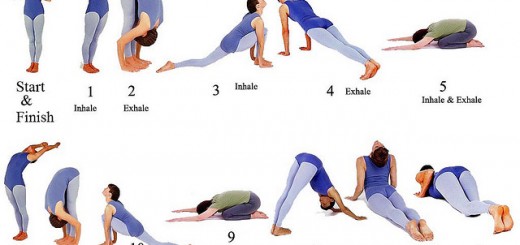Warning Symptoms to Break Your Fast Immediately
Ayurveda says that fasting is one of the best ways to kindle the digestive fire and for burning the toxins accumulated in the body as well as the mind. It helps in improving the mental clarity and eliminating the gas. It also helps in providing you a healthy body. Ayurveda always suggests regular and short-term fasting rather than irregular, frequent or long-term fasting. People fast for many reasons. Some are as follows:
Reasons to fast:
- Medical fats are prescribed to patients who undergo a surgery. It is usually for 12 to 24 hours before the scheduled procedure.
- Detoxifying fasting is for cleansing the body by flushing out the toxins. This is done after a holiday season, a time of heavy alcohol drinking and consumption of heavy and sugary foods. This fast mainly includes fruit juices and other liquids.
- Intermittent fasting helps body to fight against health issues.
- Spiritual or religious fasting is based on spiritual life. It gives the mind time to reflect on spiritual ideas while the body abstains from food.
However, the capacity to fast depend on the body type the person has. For example, if you have Vata body, you should not fast for more than 3 days. This is because Vata is light in property and fasting can cause lightness. So, prolonged fasting may cause vitiation of Vata in the body. This can lead to anxiety, weakness, fear and nervousness.
People with Pitta also face the same consequences. For such people fasting for more than four days can increase the fire element in the body, which can lead to anger, hatred and dizziness.
People with Kapha body type, on the other hand, have the ability to fast for longer periods. When the lightness in their body increased, they feel pleasant. Their focus is also improved.
When to Stop Fasting?
During the fasting period, our digestive system is resting. So, it is very important that n strain is put on the digestive fire. If any of the symptoms given below is noticed by you, you should immediately put a stop to your fasting.
Burning sensation in the stomach:
If you feel a severe burning sensation in the stomach or gastritis problem, do not fast. If you still want to take fast, make sure that you take all proper precautions.
Diarrhoea:
You suffer from diarrhoea when you consume the wrong fruits and fruit juices. It can also occur when the quality of the fruit or foods that you consume when you fast is not good. As you know, fruits are cold in nature. So, people suffering from respiratory problems should avoid eating fruits. When you suffer from diarrhoea, immediate treatment is essential. If diarrhoea is not treated on time, it can cause dehydration and electrolyte imbalance. This in turn can lead to worsening of chronic conditions such as asthma.
Menstruation:
If you are menstruating, your physical power tends to get lower. So, if you are fasting during this time, even a little extra physical activity can lead to an increase in vata. This is not good for the body. Therefore it is better that you do not fast when you are menstruating.
Pain in the stomach, chest and abdominal areas:
If you suffer from abdominal, stomach or chest pain when you fast, you should immediately stop fasting. Although you may be doing this for your spiritual belief, your health is more important to you and you should never do anything that can affect your health. Any pain in these areas can lead to serious health conditions. Therefore you must stop fasting if you face any of these problems.
Unconsciousness:
If you feel that you may faint at any time or if you feel very dizzy, it is an indication that your brain is deprived of glucose, as there is no supply of food to your brain. If you fall unconscious, put an end to your fasting or at least you must have a little amount of fruit juice to get some energy.
Vomiting:
A vomiting sensation means that you are suffering from gastric irritation and electrolyte imbalance in the body. So, you should not continue to fast if you suffer from these symptoms.
Breaking a Fast – The Right Way to do it:
- Knowing the right way to end your fasting is an important part of fasting. During the time you fast, your stomach shrinks and your intestine also becomes idle.
- Start with frequent and small meals and then gradually progress to larger meals, until you reach the normal eating routine. It is recommended that you have small meals because by introducing solid food slowly the digestive system you can prevent kidney failure and other disorders that are connected with indigestion.
- If you need to travel suddenly, it is better that you do not continue with fasting. This is because improper consumption of food can cause several health issues. Remember that fasting in a healthy manner helps in increasing your energy and gives rise to a feeling of lightness in your body. It also helps in giving clarity to your mind. It is also good for giving you relief from constipation and for regulating the bowel movements.
- Now that you know when to put a stop to your fasting, do fasting and get the benefits it can offer to your body. But you must always listen to your body and pay attention to what your body is trying to communicate. If you experience any of the symptoms mentioned above, stop fasting.




